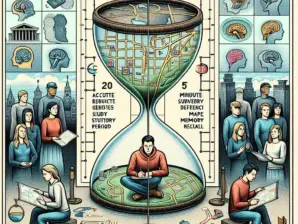It is now online the article: ![]() May reducing driving-related phobia recover developmental topographical disorientation? A case report. by Cecilia Guariglia, Samuele Russo, Alessia Bonavita, Raffaella Nori and Laura Piccardi, published in Applied Neuropsychology: Adult.
May reducing driving-related phobia recover developmental topographical disorientation? A case report. by Cecilia Guariglia, Samuele Russo, Alessia Bonavita, Raffaella Nori and Laura Piccardi, published in Applied Neuropsychology: Adult.
In this article, we report the case of a girl with developmental topographical disorientation (DTD) and driving related fear (DRF) who struggled to learn driving routes due to her phobia. Her score in learning a computerized environment (the short version of the Computerized Ecological Navigational Battery: LBS) was low, and her performance in the other rating scales was below the cutoff, confirming the presence of DTD. However, after receiving psychological treatment for her DRF, she became faster in moving through LBS, but the assessment of navigational skills still indicated the presence of DTD, suggesting the independence of the two disorders. When addressing both DTD and psychological disorders, clinicians must prioritize which issue to tackle first. Here are some suggestions to help decide when to prioritize one aspect over the other to provide the best possible care for the patient.
Over the last decade, there has been a noticeable rise in the number of people experiencing developmental topographical disorientation (DTD). This is a learning disability that affects the ability to navigate through one’s surroundings. Individuals with DTD find themselves getting lost in familiar places daily, which can have a significant impact on their quality of life. As more people become aware of this disorder, they often seek help from diagnostic centers. This study offers recommendations for clinicians, including tips for accurately assessing the disorder (such as differential diagnosis) and suggesting effective treatment options for any associated psychological issues.







